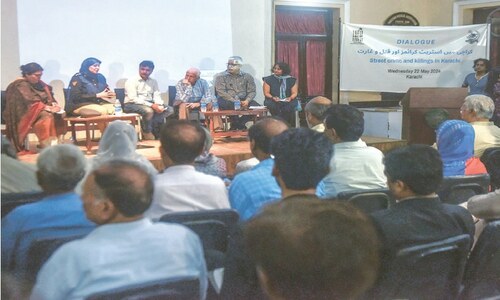CONTRARY to Fort William College, which was established in Calcutta in 1800 to teach local languages and some ‘tricks of the trade’ to the English officers of the East India Company, the aim of establishing Delhi College was to teach English and modern sciences to natives, possibly in their own languages.
Ever since its establishment in 1825, Delhi College had had many heads and among them was J.H. Taylor, who right from the beginning served Delhi College. Taylor had four tenures as superintendent or principal, before he was killed by the mob during the course of events of 1857 freedom war.
Among the students of Delhi College, some were to become famous scholars in future and among the teachers too were some distinguished scholars. Delhi College was fortunate to have as principal at least two well-known orientalists. They were Felix Boutros and Aloys Sprenger. Boutros was a French orientalist, researcher and translator. His full name was Felix-Pierre Boutros and he was born in Mayenne (France) on Oct 14, 1806. But biographical information about Boutros is scanty and even Garcin de Tassy, the French scholar of Urdu who was on good terms with Boutros, did not give much details about life of Boutros, though de Tassy has mentioned Boutros in his different works on ‘Hindustani’ (read: Urdu) literature and language several times.
Gail Minault, who has carried out deep research on history and culture of Pak-India subcontinent, says that the name Boutros suggests that he was of an Arab-Christian descent and perhaps came from Egyptian or Lebanese background, though apparently educated in France. But Mohammad Ikram Chaghatai has cast a shadow of doubt on Minault’s assumptions about Boutros. According to Chaghatai, de Tassy has written that one of the relatives of Boutros lived in India, perhaps in a remote part of Bengal. As a young man, Boutros came to India to see his relative in or around 1824. In a research article of his, Ikram Chaghatai wrote that Boutros learnt Urdu quite well, though he could not find suitable academic work and had to do odd jobs in Bengal initially. But later on he worked as an official of the East India Company, posted in Thuggee Department in Chhapra, Bihar. In 1840 Boutros was appointed as the principal of Delhi College.
Boutros was in favour of spreading knowledge and teaching sciences through local languages and for that purpose he supported translating into Urdu the scientific works published in the West. Delhi College had adopted Urdu as well as English as medium of instruction. At Delhi College Boutros launched a project to translate books on science into Urdu and it was decided to form a Vernacular Society. According to Moulvi Abdul Haq, the full name of the society was Society for the Promotion of Knowledge in India through the Medium of Vernacular Languages.
Later on, for the purpose of brevity and clarity, it was often called Delhi Translation Society or Vernacular Translation Society. Established in 1843, the society increased the pace of translations, something which was already being done at Delhi College. Boutros was the secretary of the society and he took a keen interest in production of books in Urdu. According to Malik Ram, Boutros merged both the Eastern and Western wings of the college, a step that helped improve the teaching of sciences in Urdu.
To teach modern sciences, the teachers of Delhi College either translated into Urdu or wrote in Urdu a large number of books on scientific disciplines. The phenomenal contribution of Delhi College towards Urdu language and literature was indeed due to its teachers and principals and, of course, some of the students. Moulvi Abdul Haq in his book Marhoom Delhi College has given a list of 128 books on scientific topics that the society got published in Urdu. The society also laid down rules for translating technical books into Urdu, some of which can come in handy even today.
Boutros worked as Delhi College principal till 1845 when his health fell and he had to resign. His physician had advised him to go to Europe for a recovery and he went to France, settling in Angers. His health improved and he got married there. But despite his desire to return to India and work for Delhi College again, he could not come back for medical reasons. On May 11, 1857, the college was attacked and had to be closed down. Now Boutros’s return was out of the question as the entire country was passing through an extraordinary situation.
Delhi College could not reopen before May 1864. And Felix Boutros died in Angers, France, on May 12, 1864. His contribution towards popularising science in the subcontinent through Urdu language could never be forgotten.
Published in Dawn, May 7th, 2019














































Dear visitor, the comments section is undergoing an overhaul and will return soon.